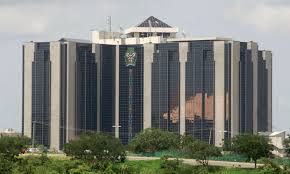
Credit To Govt Rises By 22.5% To N16.3trn In Q1, 2022
In apparent reflection of increased borrowing activities of the federal and state governments, credit to the government rose by N3 trillion or 22.5 per cent, quarter-on-quarter (QoQ) to N16.3 trillion in Q1’22 from N13.3 trillion in the fourth quarter of 2021, Q4’21.
The Central Bank of Nigeria (CBN) disclosed this in its latest Money and Credit data, which showed that credit to the government dominated the N4.2 trillion or 8.6 per cent QoQ increase in credit to the economy to N52.7 trillion in Q1’22 from N48.5 trillion in Q4’21.
According to the CBN, credit to the private sector rose QoQ by N1.17 trillion or 3.3 per cent to N36.37 trillion in Q1’22 from N35.2 trillion in Q4’21.
Meanwhile, the Currency in circulation (CIC) declined, QoQ by 2.4 per cent to N3.24 trillion Q1’22 from N3.32 trillion in Q4’21.
According to the CBN data, the CIC fell by 1.2 per cent to N3.28 trillion in January from N3.32 trillion in December 2021. It went down further by 0.9 per cent to N3.25 trillion in February, and 0.3 per cent to N3.24 trillion in March.
Despite the decline in CIC, reserve money rose QoQ by 8.3 per cent to N14.3 trillion in Q1’22, from N13.2 trillion in Q4’21.
Read Also: Consumer Credit Rises By 40% To N2.1trn — CBN
However, in their outlook for 2022, analysts at FSDH research said the government’s plan to accumulate more borrowing would raise debt servicing costs.
“The government plans to accumulate more borrowing to fund subsidy payments in 2022 which could exceed N3 trillion. This will further raise debt levels and increase debt servicing costs as a share of revenue, which was already high at 76 per cent in 2021 (January – November).”
